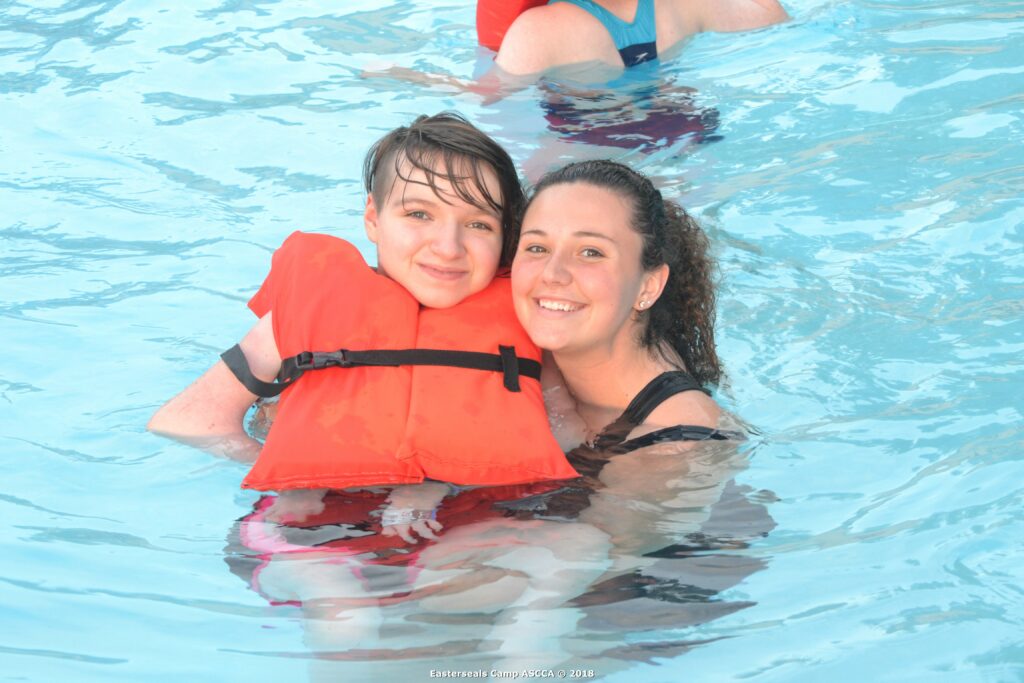
Happy Women’s Month, Camp ASCCA! I miss all of you so much, and I can’t wait for this summer! Since my disabilities put me at a higher risk for getting really sick with COVID-19, I’ve been trying to stay home as much as possible since last year. It’s been really hard to stay safe and stay happy but keeping in touch with friends has made it easier, even when unexpected health issues made my isolation even worse. In my last blog, I talked about finding support from other people with disabilities during my surgery, and I’d like to talk more about that and my recovery today.
If keeping my spirits up while staying home was hard, doing this while living on the couch after my surgery was like going upstairs in a wheelchair. I couldn’t move for a month without having really terrible pain, and that meant losing my ability to text and use social media. My only connection to the world outside my living room wasn’t accessible to me, and I was sure it was going to be the most miserable month of my life. What I didn’t know is my friends were going to be there after all, even when I couldn’t reach out.
Every day someone would call me, and all of them were other people with disabilities. One of my very best friends from camp, Lacy, even checked on me while I was in the hospital. I couldn’t answer the call by myself, and my every conversation had to be on speaker for the whole house to hear, but that wasn’t a problem for her and a couple others. If my parents were walking through during our call, or if I needed to go because the medication tired me out, they understood. They just wanted to keep in touch and make sure I was okay, no matter the circumstances.
Other friends were too uncomfortable with the situation to check in, which I expected. I’ve always had friends who don’t want to be around the care attendants or assistive technology that I need to care for myself, and often they’re not comfortable helping with care, either. Things that are different make people who don’t understand them uncomfortable, and that can make certain relationships hard to maintain. I wish everyone was willing to accept my entire self, disability included, but that’s never been the case.
It can be disappointing when people we want in our lives can’t come through for us in the way we’d like them to, but I encourage you all not to give up. There are people out there who can provide what writer Mia Mingus calls access intimacy, the special kind of closeness you feel with someone who understands and accepts the way you access what you need. This is how I feel with the friends who stick around when my disability’s impact on my life is hard to ignore, the friends who will never resent me for needing help or being too sick to hang out. People who don’t make you feel bad for being different, who don’t think twice about whether it’s worth it to include you, are real; these relationships may be rare, but they exist, and we all deserve them.

Located in Alabama on Lake Martin, Camp ASCCA offers campers a wide variety of traditional recreational and educational activities with a unique design for accessibility.

Sign up for our eNewsletter to keep up with events and happenings at Camp ASCCA!